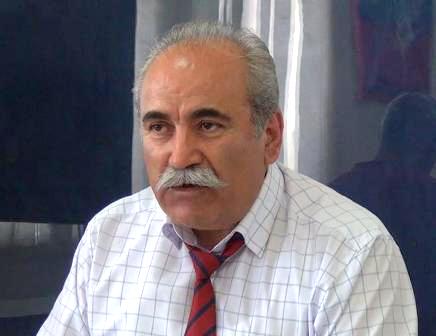 The National Assembly of Artsakh issued a message addressed to the Member States of the United Nations, calling on them to recognize the independence of the Republic of [Artsakh] Nagorno-Karabakh.
The National Assembly of Artsakh issued a message addressed to the Member States of the United Nations, calling on them to recognize the independence of the Republic of [Artsakh] Nagorno-Karabakh.
“Based on the UN Charter, the 1948 UN Universal Declaration of Human Rights, the 1948 UN Convention on Human Rights, Convention “On the Prevention and Punishment of the Crime of Genocide”, European Convention for the Protection of Human Rights and Fundamental Freedoms of 1950, the 1965 International Convention on the Elimination of All Forms of Racial Discrimination and other international treaties regarding International Human Rights Law and Humanitarian Law, the 1974UN General Assembly Resolution on “Definition of Aggression”, the 2005 UN General Assembly Resolution “On the Obligation to Protect the Population from Genocide, Ethnic Cleansing and Crimes Against Humanity”, the results of the September 2, 1991 declaration “On the Proclamation of the Nagorno-Karabakh Republic”, the results of the December 10, 1991 referendum on the independence of the Nagorno-Karabakh Republic, the January 6, 1992 Law of the NKR Supreme Council “On the Basics of the Independence of the Nagorno-Karabakh Republic”, the January 6, 1992decision of the NKR Supreme Council “On Approving the Text of the NKR State Independence Declaration”, agreements on an Indefinite Ceasefire of May 9, 1994 between the parties to the conflict, the document adopted by the First Meeting of the OSCE Senior Officials on March 31, 1995, the November 9, 2020, Trilateral Declaration signed by Russia, Armenia and Azerbaijan on the cessation of all military operations in Nagorno Karabakh, according to the decision of the European Court of Human Rights of December 21, 2022,the February 22, 2023 decisions of the UN International Court of Justice (reaffirmed on July 6), the resolution of the Parliamentary Assembly of the Council of Europe of June 22, 2023,
Strictly condemning the fact that the Azerbaijani side regularly violates the provisions of the November 9, 2020, Tripartite Declaration,
Drawing attention to the fact that Azerbaijan has not yet fulfilled its obligations to release Armenian prisoners of war and hostage civilians and, in every possible way, prevents the return of internally displaced persons to Nagorno-Karabakh and neighboring regions, which, according to the provisions of the Declaration, should have taken place under the supervision of the United Nations High Commissioner for Refugees,
The threats posed by Azerbaijan to the civilian population of Artsakh since the signing of the Tripartite Declaration, have not only not decreased, but have increased significantly. In this regard, we record the following facts:
– On January 30, 1992, Azerbaijan, along with Armenia, became a member of the Council for Security and Cooperation in Europe (CSCE; OSCE since 1995), having assumed obligations. The CSCE recognized the sovereignty of these countries on condition that they, in their turn, accept the fact of disagreements regarding the ownership of Nagorno Karabakh and agree that the future status of Nagorno Karabakh will be decided at an international conference, which will take place under the auspices of the CSCE. Both states have given their consent, undertaking to solve the problem peacefully. Azerbaijan violated its commitments and unleashed a large-scale aggression against the Republic of Nagorno Karabakh (Artsakh). Organizing its self-defense, the Republic of Nagorno-Karabakh (Artsakh) showed worthy resistance and defended its independence in the war initiated by Azerbaijan in 1992-1994. In May 1994, Azerbaijan had to sign an agreement with the Nagorno-Karabakh Republic – the Agreement “On a Complete Cessation of Fire and Hostilities”, which was recognized by the international community.
– On April 2, 2016, the Republic of Azerbaijan, violating all norms of international law and disrupting the long-term negotiation process on the peaceful settlement of the Nagorno-Karabakh conflict under the auspices of the OSCE Minsk Group Co-Chairmanship, again unleashed a large-scale military aggression against the Nagorno-Karabakh Republic (Artsakh) which was stopped by the intervention of the Russian Federation.
– On September 27, 2020, despite the trilateral ceasefire agreement reached, with the full support of Turkey and direct control of military operations with the involvement of thousands of hired terrorists from different countries of the Middle East, Azerbaijan again resorted to large-scale military aggression against the Nagorno-Karabakh Republic (Artsakh), which was stopped on November 9, 2020 after the signing of the Tripartite Declaration “On the Cessation of All Hostilities in Nagorno-Karabakh by the Leaders of Russia, Armenia and Azerbaijan.”
– On December 12, 2022, a group of Azerbaijanis so-called “environmentalists”, by the order and agreement of the military-political leadership of Azerbaijan, entered the area under the Russian peacekeeping mission responsibility, at the intersection of the Shushi-Karintak roads, and blocked the only road between Nagorno-Karabakh (Artsakh) and the Republic of Armenia, the Lachin Corridor, having also cut off the supply of energy, gas and electricity through the area.
– On December 21, 2022, the European Court of Human Rights adopted a decision, by which Azerbaijan is obliged to take all necessary and sufficient measures to secure the Lachin Corridor for the seriously ill persons in need of transportation to Armenia for medical treatment;
– On February 22, 2023, the UN International Court of Justice passed a decision by which Azerbaijan is obliged to take all necessary and sufficient measures to ensure the unimpeded movement of people, vehicles and cargo through the Lachin Corridor in both directions. It was reaffirmed on July 6.
– On April 23 of this year, ignoring the provisions set out in the Tripartite Statement of November 9, 2020, the decisions of the European Court of Human Rights of December 21, 2022 and judgments of the International Court of Justice confirmed on 22 February and 6 July 2023, Azerbaijan have illegally set up a checkpoint in the corridor, thus deepening the blockade and taking the Nagorno-Karabakh Republic (Artsakh) under a complete siege since June 15.
– As a result of such anti-human actions, 120,000 civilians of Artsakh (including 30,000 children) faced a real threat of ethnic cleansing from Azerbaijan. About 30,000 internally displaced persons are still unable to return to their permanent place of residence.
– Pursuing the undisguised goal of depopulating Artsakh and annexing it by force, and violating the existing norms of international law with impunity, Azerbaijan is consistently illegally occupying new territories of the Republic of Artsakh. Along with the regular shelling of Armenian settlements, the killing and intimidation of the civilian population, the creation of all sorts of obstacles to their normal life with an intention to make the life of people unbearable, Azerbaijan, at the same time, commits acts of vandalism against the Armenian historical and cultural heritage.
Warning that the population of the Nagorno-Karabakh Republic (Artsakh) is under siege from Azerbaijan and faces the danger of LOSS OF HOMELAND and GENOCIDAL actions of the Azerbaijani authorities,
Taking into account the genocidal policy implemented by Azerbaijan towards the population of Artsakh and the most serious ontological threats facing its population, the Republic of Artsakh National Assembly, the highest representative body endowed with the primary mandate of the people of Artsakh, expressing the will and position of the entire population of the republic,
ADDRESSES A MESSAGE
to the UN member countries and
MAKES AN APPEAL
Guided by the norm of the right of nations to self-determination enshrined in the UN Charter, based on the declaration of September 2, 1991 “On the Proclamation of the Republic of Nagorno-Karabakh”, the results of the referendum on independence of December 10, 1991,Law of the NKR Supreme Council “On the Basics of Independence of the Nagorno-Karabakh Republic” of January 6, 1992, the decision of the NKR Supreme Council “On approving the text of the NKR State Independence Declaration” of January 6, 1992,to recognize the independence of the Republic of Nagorno Karabakh (Artsakh).
– It is undisputable that all necessary grounds for recognition are there. The Nagorno-Karabakh Republic has realized its right to self-determination without violating the territorial integrity of Azerbaijan, without violating the relevant provisions of the Constitution of the USSR, the definition of the Law of the Supreme Soviet of the USSR of April 3, 1990 “On the Secession of Union Republics from the USSR”, according to which “autonomous republics and autonomous entities have the right to independently decide whether to stay in the union or in a union republic which leaves it, and also to resolve the issue of their own state-legal status”, following all norms of international law.
– We are strongly convinced that that the recognition of the Nagorno-Karabakh Republic (Artsakh) by the UN member states will become a reliable guarantee of the security of our people, contribute to the creation of favorable conditions for its normal life in his historical homeland. This will also ensure stability, long-term and permanent peace in the South Caucasus region.
– We firmly believe, that the only way to prevent the impending tragedy is the recognition of the Republic of Nagorno-Karabakh (Artsakh)independence based on the principle of RECOGNITION IN THE NAME OF SALVATION,” the message reads.







